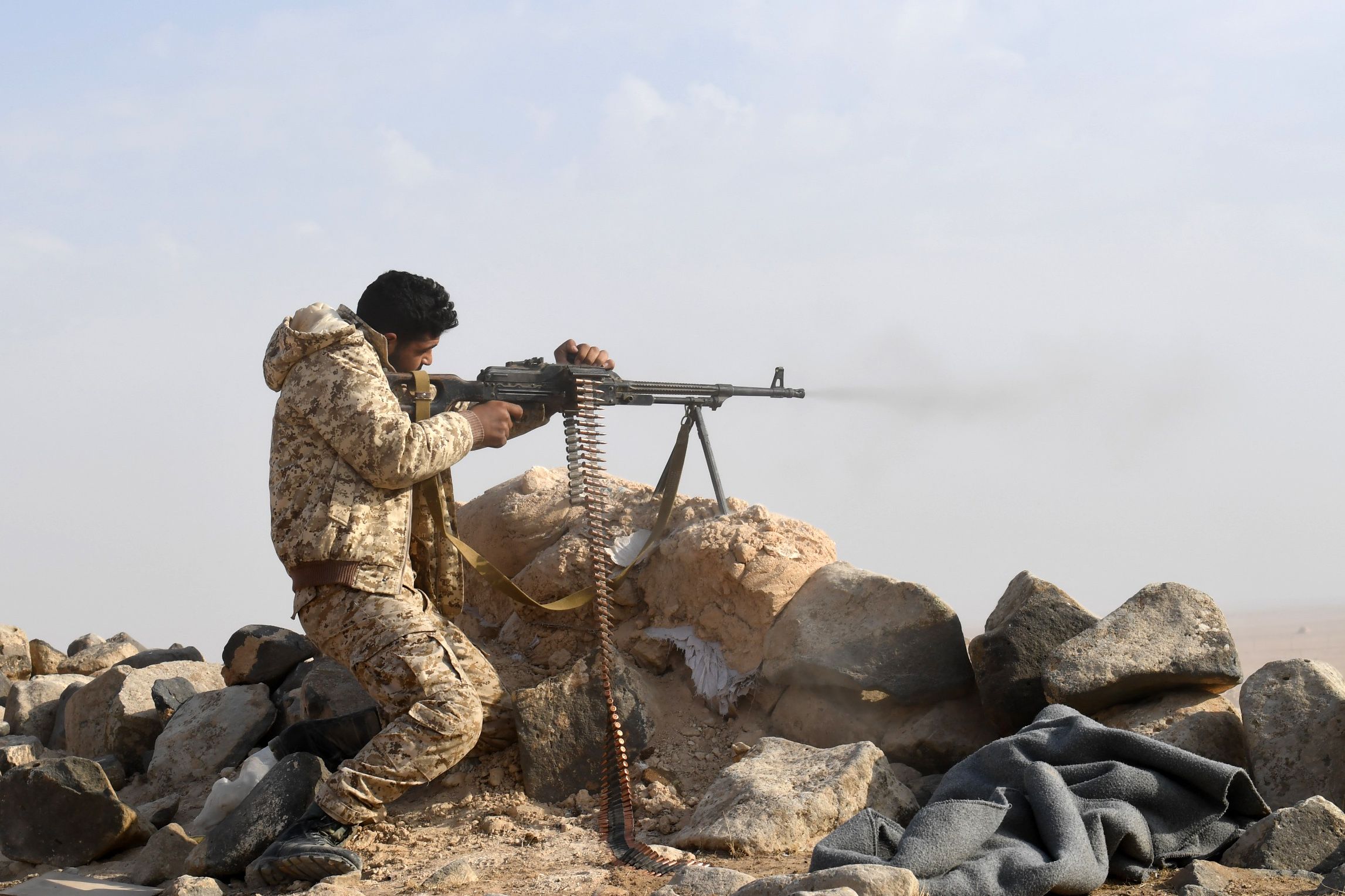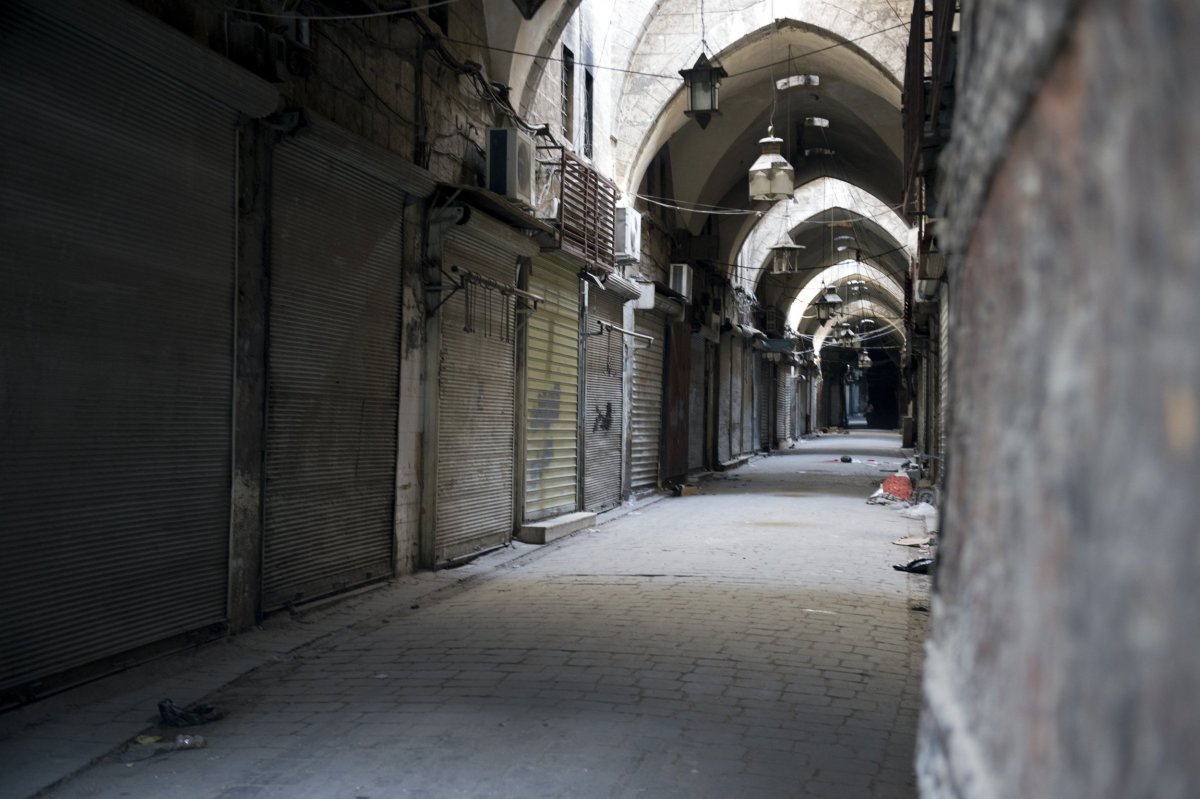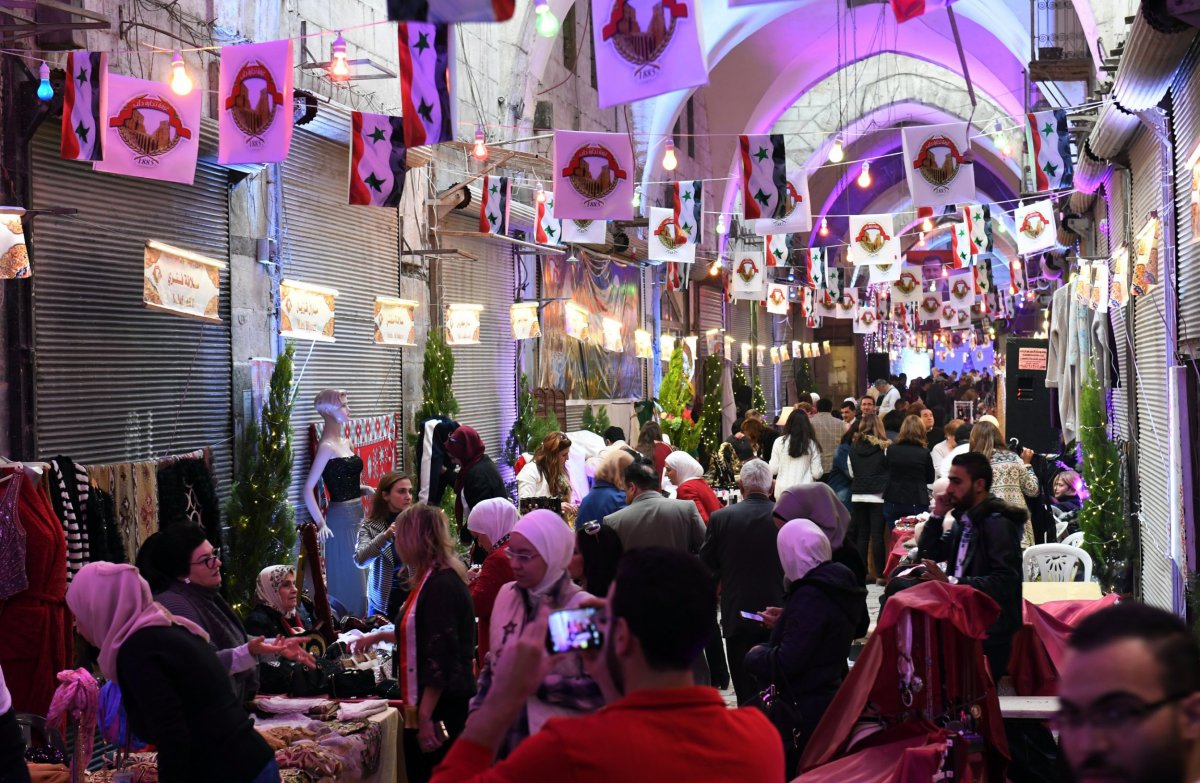
In the year since the Syrian government, backed by Russia and Iran, retook the city of Aleppo from rebels who had made the metropolis a symbol of their revolution, Syrian President Bashar al-Assad has managed to secure most of his country's territory, but not the support of the U.S., which would still like to use its limited influence in the country to see the Syrian leader ousted.
Assad, who stood accused of war crimes by the U.S. and its allies, defied expectations that he would succumb to a 2011 uprising by rebels backed by the West, Turkey and Gulf Arab states, as well as jihadis, who by 2013, included the Islamic State militant group (ISIS). The U.S. later switched its backing to the Syrian Democratic Forces, a mostly Kurdish alliance of Arabs and ethnic minorities battling ISIS. With the militants having been largely defeated by separate campaigns backed by the U.S. and Russia, Moscow has renewed calls to expel its rival international force, whose presence the Syrian government considered illegal.
Related: How ISIS got weapons from the U.S. and used them to take Iraq and Syria
"We believe that after the victory over ISIS there is no need for the U.S.-led coalition to further remain in Syria, especially given that they had not been invited there," Alexei Borodavkin, Russia's ambassador in Geneva, said Friday, according to the state-run Tass Russian News Agency.
"So, we are calling on the Americans to pack their rucksacks and go," he added. "But apparently, this is not part of their plans, and this arouses concerns."
Russia staged a direct military intervention at Assad's request in 2015, a year after the U.S. had formed a coalition to bomb ISIS. While Russia's air campaign was wider in scale and targeted a range of rebel groups as well as ISIS, the U.S. also had been covertly supporting insurgents since 2012, the year major cities such as Aleppo were seized from the government. This support dwindled as the opposition faced a series of territorial losses, infighting and absorption by jihadi groups, compelling the U.S. to focus instead on Kurdish fighters, who had both worked with and against Assad throughout the multifaceted conflict.
Aleppo, once Syria's largest city and commercial hub, had witnessed intense clashes throughout the war, but in July 2016, the Syrian military laid siege to the embattled city for the second time. Backed by Russian warplanes and pro-government militias, including Iran-backed Shiite Muslim groups, the Syrian military engaged in a vicious battle for the city, with both sides lobbing accusations of atrocities at the other. U.S.-backed Kurds also were involved and ultimately opted to get behind pro-government forces. On December 15, 2016, Syrian rebels began evacuating the city and were forced into a surrender that was widely seen as a major turning point in the war.
Opposition fighters who did not lay down their weapons were evacuated with their families to the northwestern province of Idlib, still under insurgent control. In exchange, residents also were evacuated from the majority Shiite Muslim villages of al-Foua and Kefraya, both under siege by the mostly Sunni Muslim opposition. The transfer of rebel fighters was partially overseen by Turkey, which staged its own limited intervention to carry the fractured Free Syrian Army that August.
With the Aleppo turnaround, Turkey also took a softer tone on Assad and agreed to work together with his allies, Russia and Iran, and to negotiate with them in the Kazakh capital of Astana toward a peaceful settlement to the conflict. Amid further victories against rebels across the western half of Syria, the Syrian military prepared for a long-awaited march toward the now heavily ISIS-dominated east.


As the Syrian Democratic Forces stormed ISIS's de facto capital of Raqqa in the north, Syria's armed forces fought their way cross-country to the militants' final stronghold of Deir Ezzor in the east. ISIS lost Raqqa in mid-October and then was defeated the following month in Deir Ezzor. Both the U.S. and Russia have accused one another of provocations on the battlefield and of contributing to ISIS's rise rather than effectively fighting the militants. Facing the total collapse of the group's self-styled caliphate in Iraq and Syria, Russia has sought to upstage the U.S. by eclipsing its role in Syria and beyond.
State Department spokesperson Heather Nauert said as recently as Tuesday that the U.S. believed "that the future of Syria will not include Bashar al-Assad," but she added that this was "up to the Syrian people and the Syrian voters to decide," echoing Russia's traditional stance. The next Syrian presidential election has been scheduled for 2021.
Moscow also has made headway in recent weeks with the U.S.'s main Syria partner, the Kurds, who have entered into talks with the Syrian government in hopes of achieving some degree of autonomy in the north. The Syrian Democratic Forces maintain extensive control over this region, which they refer to as Rojava and where Russia has attempted to reconcile Kurdish interests with those of Assad and Turkey, which has accused Kurdish militias of links to Kurdish militant groups considered terrorist organizations by Ankara. Russia also recently agreed to sell an advanced weapons system to Turkey and Washington's leading Arab ally, Saudi Arabia.
While falling short of declaring Jerusalem the sole capital of a Palestinian state, Russia also has joined international criticism of Trump's decision to name the disputed city the sole capital of Israel. Trump's announcement was widely protested across the Middle East.
Uncommon Knowledge
Newsweek is committed to challenging conventional wisdom and finding connections in the search for common ground.
Newsweek is committed to challenging conventional wisdom and finding connections in the search for common ground.
About the writer
Based in his hometown of Staten Island, New York City, Tom O'Connor is an award-winning Senior Writer of Foreign Policy ... Read more
To read how Newsweek uses AI as a newsroom tool, Click here.








